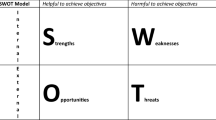Abstract
This study presented a bibliometric and thematic analysis of systematic reviews of artificial intelligence (AI) in education, selecting relevant papers using the Preferred Reporting Items for Systematic Reviews and Meta-Analyses (PRISMA) guideline. The VOSviewer software was utilized to analyze 44 papers in order to identify trends, patterns, and keyword clusters. China and Hong Kong were the most prolific countries publishing review papers between 2019 and 2023. Our result revealed that Computers and Education: Artificial Intelligence is the prominent outlet for research in this field. This study’s eight keyword clusters provided a comprehensive overview of the various aspects and applications of AI in education, including AI education and teaching, AI implementation in health and education fields, conversational AI and language models, education and learning analytics for sustainable development, AI algorithms and intelligent tutoring systems in higher education, emerging technologies in distance and virtual education, and digital health and ethics. Our results can inform policymakers, educators, and researchers about the potential of AI to improve the teaching and learning processes.
Access this chapter
Tax calculation will be finalised at checkout
Purchases are for personal use only
Similar content being viewed by others
References
Aguilar-Esteva, V., Acosta-Banda, A., Carreño Aguilera, R., Patiño Ortiz, M.: Sustainable social development through the use of artificial intelligence and data science in education during the covid emergency: A systematic review using prisma. Sustainability 15(8), 6498 (2023). https://doi.org/10.3390/su15086498
Akgun, S., Greenhow, C.: Artificial intelligence in education: addressing ethical challenges in k-12 settings. AI Ethics 1–10 (2021). https://doi.org/10.1007/s43681-021-00096-7
Arya, S., Kaji, A.H., Boermeester, M.A.: Prisma reporting guidelines for meta-analyses and systematic reviews. JAMA Surg. 156(8), 789–790 (2021). https://doi.org/10.1001/jamasurg.2021.0546
Chuyen, N.T.H., et al.: An empirical analysis of predictors of AI-powered design tool adoption. TEM J. 12(3), 1482 (2023). https://doi.org/10.18421/TEM123-28
Dimitriadou, E., Lanitis, A.: A critical evaluation, challenges, and future perspectives of using artificial intelligence and emerging technologies in smart classrooms. Smart Learn. Environ. 10(1), 1–26 (2023). https://doi.org/10.1186/s40561-023-00231-3
Garlinska, M., Osial, M., Proniewska, K., Pregowska, A.: The influence of emerging technologies on distance education. Electronics 12(7), 1550 (2023). https://doi.org/10.3390/electronics12071550
Laupichler, M.C., Aster, A., Schirch, J., Raupach, T.: Artificial intelligence literacy in higher and adult education: a sco** literature review. Comput. Educ. Artif. Intell. 100101 (2022). https://doi.org/10.1016/j.caeai.2022.100101
Rangel-de Lázaro, G., Duart, J.M.: You can handle, you can teach it: systematic review on the use of extended reality and artificial intelligence technologies for online higher education. Sustainability 15(4), 3507 (2023). https://doi.org/10.3390/su15043507
Lo, C.K.: What is the impact of ChatGPT on education? A rapid review of the literature. Educ. Sci. 13(4), 410 (2023). https://doi.org/10.3390/educsci13040410
Nguyen, V., Nguyen, C.: The effect of structural equation modeling on chatbot usage: an investigation of dialogflow. IJAIT (Int. J. Appl. Inf. Technol.) 38–49 (2023). https://doi.org/10.25124/ijait.v6i01.4840
Nguyen, V.T., Jung, K., Gupta, V.: Examining data visualization pitfalls in scientific publications. Vis. Comput. Ind., Biomed., Art 4(1), 1–15 (2021). https://doi.org/10.1186/s42492-021-00092-y
Nguyen, V.T., Lai, H.T., Ha, Q.V.: Factors affecting the readiness of digital transformation adopters: a case study in Vietnam. Int. Res. J. Sci., Technol., Educ., Manag. (IRJSTEM) 3(1) (2023). https://doi.org/10.5281/zenodo.7772821
Nguyen, V.T., Nguyen, C.T., Yoo, S.C., Jung, K.: Unveiling augmented reality applications: exploring influential factors through comprehensive review. SN Comput. Sci. 4(5), 694 (2023). https://doi.org/10.1007/s42979-023-02175-4
Nguyen, V.T., Nguyen, C.T.: A systematic review of structural equation modeling in augmented reality applications. Indones. J. Electr. Eng. Comput. Sci. 328–338 (2022). https://doi.org/10.11591/ijeecs.v28.i1.pp328-338
Ray, P.P.: ChatGPT: a comprehensive review on background, applications, key challenges, bias, ethics, limitations and future scope. Int. Things Cyber-Phys. Syst. (2023). https://doi.org/10.1016/j.iotcps.2023.04.003
Salas-Pilco, S.Z., **ao, K., Hu, X.: Artificial intelligence and learning analytics in teacher education: a systematic review. Educ. Sci. 12(8), 569 (2022). https://doi.org/10.3390/educsci12080569
Salas-Pilco, S.Z., Yang, Y.: Artificial intelligence applications in Latin American higher education: a systematic review. Int. J. Educ. Technol. High. Educ. 19(1), 1–20 (2022). https://doi.org/10.1186/s41239-022-00326-w
Sallam, M.: ChatGPT utility in healthcare education, research, and practice: systematic review on the promising perspectives and valid concerns. In: Healthcare, vol. 11, p. 887. MDPI (2023). https://doi.org/10.3390/healthcare11060887
Su, J., Ng, D.T.K., Chu, S.K.W.: Artificial intelligence (AI) literacy in early childhood education: The challenges and opportunities. Comput. Educ. Artif. Intell. 4, 100124 (2023). https://doi.org/10.1016/j.caeai.2023.100124
Su, J., Yang, W.: Artificial intelligence in early childhood education: a sco** review. Comput. Educ. Artif. Intell. 3, 100049 (2022). https://doi.org/10.1016/j.caeai.2022.100049
Su, J., Zhong, Y., Ng, D.T.K.: A meta-review of literature on educational approaches for teaching AI at the k-12 levels in the Asia-pacific region. Comput. Educ. Artif. Intell. 3, 100065 (2022). https://doi.org/10.1016/j.caeai.2022.100065
Tahiru, F.: AI in education: a systematic literature review. J. Cases Inf. Technol. (JCIT) 23(1), 1–20 (2021). https://doi.org/10.4018/JCIT.2021010101
Thurzo, A., Strunga, M., Urban, R., Surovková, J., Afrashtehfar, K.I.: Impact of artificial intelligence on dental education: a review and guide for curriculum update. Educ. Sci. 13(2), 150 (2023). https://doi.org/10.3390/educsci13020150
Van Eck, N., Waltman, L.: Software survey: Vosviewer, a computer program for bibliometric map**. Scientometrics 84(2), 523–538 (2010). https://doi.org/10.1007/s11192-009-0146-3
Weng, X., Chiu, T.K.: Instructional design and learning outcomes of intelligent computer assisted language learning: systematic review in the field. Comput. Educ. Artif. Intell. 100117 (2023). https://doi.org/10.1016/j.caeai.2022.100117
Zawacki-Richter, O., Marín, V.I., Bond, M., Gouverneur, F.: Systematic review of research on artificial intelligence applications in higher education-where are the educators? Int. J. Educ. Technol. High. Educ. 16(1), 1–27 (2019). https://doi.org/10.1186/s41239-019-0171-0
Zhai, X., Chu, X., Chai, C.S., Jong, M.S.Y., Istenic, A., Spector, M., Liu, J.B., Yuan, J., Li, Y.: A review of artificial intelligence (AI) in education from 2010 to 2020. Complexity 2021, 1–18 (2021). https://doi.org/10.1155/2021/8812542
Author information
Authors and Affiliations
Corresponding author
Editor information
Editors and Affiliations
Rights and permissions
Copyright information
© 2024 The Author(s), under exclusive license to Springer Nature Switzerland AG
About this paper
Cite this paper
Vinh, NT., Phung, TN., Cuong, DD. (2024). A Bibliometric and Thematic Analysis of Systematic Reviews of Artificial Intelligence in Education. In: Nghia, P.T., Thai, V.D., Thuy, N.T., Son, L.H., Huynh, VN. (eds) Advances in Information and Communication Technology. ICTA 2023. Lecture Notes in Networks and Systems, vol 848. Springer, Cham. https://doi.org/10.1007/978-3-031-50818-9_37
Download citation
DOI: https://doi.org/10.1007/978-3-031-50818-9_37
Published:
Publisher Name: Springer, Cham
Print ISBN: 978-3-031-50817-2
Online ISBN: 978-3-031-50818-9
eBook Packages: Intelligent Technologies and RoboticsIntelligent Technologies and Robotics (R0)




